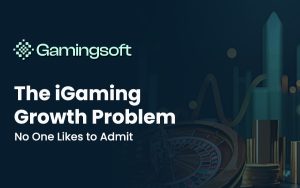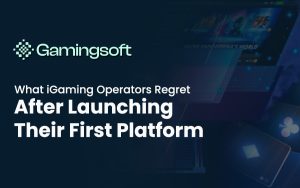Competition in iGaming is no longer about who attracts the most players—it’s about who keeps them coming back. Every click, bet, and withdrawal reveals what players care about and how they connect with a brand. That’s the core of iGaming Customer Relationship Management (CRM): using data and interaction to build loyalty that lasts longer than a single bonus cycle.
Most operators still focus heavily on acquisition, pouring budgets into ads and sign-up offers. Yet, research from the University of Malta – Customer Relationship Management in Online Gaming shows that retention strategies built on CRM systems deliver stronger long-term profitability. A player who feels recognized and understood stays longer, spends more, and becomes a brand advocate.
For modern iGaming businesses, CRM isn’t a plug-in or dashboard—it’s the foundation of sustainable growth and the bridge between raw data and real relationships.
Rethinking CRM Through the Lens of iGaming
Traditional CRM platforms were built for retail or SaaS businesses — not for the high-velocity world of online gaming. In iGaming, customer relationships evolve in real time: deposits, gameplay activity, rewards, and support tickets form a living data ecosystem that must be tracked and optimized continuously.
A modern iGaming CRM unifies all those touchpoints. It collects behavioral signals, automates communication, and personalizes offers for every player segment — from casual weekend players to high-stakes VIPs.
The goal is not only to send better emails or push notifications, but to build emotional equity — the kind of trust that keeps players loyal even when new platforms emerge with flashier promotions. As explored in “Why Do Online Casinos Need CRM?“, long-term retention strategies consistently outperform short-term acquisition in both ROI and brand resilience.
The Operational Backbone: What an iGaming CRM Really Does
For operators, CRM serves as both microscope and map. It helps visualize the entire player journey and magnify critical moments where engagement can be won or lost.
Some of its most impactful functions include:
- Segmentation and Automation: Group players by value, activity level, geography, or risk profile.
- Behavioral Targeting: Trigger offers when players hit milestones, change betting habits, or go dormant.
- Lifecycle Campaigns: Automate reactivation, retention, and VIP reward flows.
- Performance Analytics: Track lifetime value, conversion rates, and churn risk.
Research from Chalmers University’s study on “Digital CRM and Player Retention in Online Gambling” shows that operators using automated CRM flows see an average 18% increase in monthly deposit frequency per active player.
That data underscores an important truth: CRM is not about sending more messages — it’s about sending the right message at the right time.
Data as the New Currency of Retention
Player loyalty in iGaming is no longer built solely on rewards. It’s built on personal relevance — understanding what each player values and responding accordingly.
Modern CRM systems mine behavioral data to predict intent: when players are likely to churn, when they prefer bonuses, and what games they engage with most. With this knowledge, operators can personalize every interaction — from bonus offers to push notifications — without overwhelming players with irrelevant messages.
The University of Malta’s research on “Personalization Strategies in Digital Gaming Platforms” emphasizes that personalization increases retention by over 30% when tied to real-time behavior rather than static segmentation.
GamingSoft’s CRM architecture applies the same principle. Its integration layer ensures that every bonus, message, or alert is mapped to current player activity — not just demographics. That’s how personalization becomes performance, not guesswork.
Where Operators Still Struggle: The CRM Gap
Even with technology improving, many online casinos still face an uncomfortable truth — most aren’t using CRM to its full potential.
Common issues include:
- Fragmented data across multiple platforms.
- Manual campaign management instead of automated flows.
- Poor synchronization between marketing and customer support teams.
- Weak data governance, particularly around GDPR and player privacy.
When CRM systems don’t talk to customer support tools, service quality drops. Players might receive marketing offers minutes after lodging a complaint — an instant credibility hit.
That’s why CRM and support need to act as one ecosystem. As discussed in “Online Casino Customer Support“and “Customer Support iGaming“, seamless integration between CRM and support software reduces churn and increases satisfaction, particularly among high-value players.
Technology alone doesn’t close the gap; process alignment does.
The Balancing Act: Acquisition vs Retention
For years, the iGaming industry chased growth through acquisition — more players, more ads, more bonuses. But the economics have shifted.
With higher licensing costs and stricter ad regulations, the cost of acquiring a new player now exceeds the cost of retaining one by a factor of five. That’s where CRM takes center stage.
“Player Acquisition vs Retention in iGaming” explores this paradigm shift: retention-driven CRM strategies yield longer-term profitability, while overreliance on bonuses can dilute brand equity.
Operators who blend both — acquisition to expand reach, CRM to maximize lifetime value — create a self-sustaining growth loop.
Building CRM from the Inside Out

Implementing a CRM for an iGaming platform is not just a plug-and-play task. It requires a cultural shift where data drives every business decision.
1. Start with Clean Data
Before automation, ensure all historical player data is accurate and unified. Dirty data creates false segments and wasted budgets.
2. Choose the Right Tech Stack
Select a CRM that integrates with your existing payment gateway, game providers, and affiliate systems. GamingSoftConnect, for instance, bridges multiple APIs seamlessly across modules.
3. Automate Intelligently
Automation should enhance human connection, not replace it. Set rules that feel organic — like congratulating a player for a milestone, or re-engaging them after a quiet week.
4. Train Teams for Data Literacy
CRM tools are only as good as the people using them. Train your team to interpret dashboards, track KPIs, and translate insights into marketing actions.
The University of Malta’s study on “CRM Adoption in Digital Service Industries found that employee data literacy correlates directly with campaign ROI. When teams understand what the numbers mean, personalization becomes strategic rather than random.
The Often-Overlooked Role of Customer Support
Customer support remains one of the strongest predictors of loyalty. It’s also one of the most underutilized data sources within CRM.
Every chat transcript, ticket, or complaint reveals player emotions and unmet needs — the kind of qualitative insight that analytics alone can’t capture. Integrating this data into CRM dashboards allows marketing teams to refine messaging, bonuses, and retention triggers based on real player sentiment.
Operators that synchronize their support and CRM systems can predict churn early and take proactive steps — like offering customized bonuses or faster withdrawal approvals.
In contrast, when support and CRM operate in silos, valuable context gets lost. That’s often why, as “Why Online Casino Lose Customers” highlights, even generous brands lose loyal players over service friction, not product failure.
The Next Evolution of CRM in iGaming
The future of CRM isn’t about collecting more data — it’s about using data smarter.
AI and predictive analytics are transforming how operators interact with players. Instead of reacting to churn, systems can now anticipate it. Machine learning models predict when engagement dips, and automatically trigger incentives or alerts to retain the player.
Automation is becoming channel-agnostic — managing email, SMS, push notifications, and even in-game chat within one system. As competition intensifies, this level of orchestration will separate market leaders from followers.
GamingSoftConnect already incorporates such automation logic. It synchronizes data across game servers, payment modules, and marketing tools — turning player behavior into actionable insights that drive personalized experiences at scale.
Strengthen Player Connections with GamingSoftConnect
Loyalty doesn’t happen by chance; it’s engineered through consistent, data-driven experiences. With GamingSoftConnect, operators can finally unify their player relationship management across marketing, payments, and support.
Its CRM integration layer streamlines campaigns, automates segmentation, and bridges every point of interaction — so no player feels invisible. Whether you’re optimizing retention flows or expanding VIP programs, the platform gives your team real-time intelligence to act with precision.
Every connection starts with understanding your players. Build that connection with GamingSoftConnect — the platform that turns player data into loyalty and loyalty into growth.
With our unified CRM infrastructure, you’ll have everything you need to manage, analyze, and strengthen your player relationships — all in one connected ecosystem.
The Lasting Impact of CRM on iGaming Brands
CRM has evolved from a marketing add-on into the heartbeat of iGaming operations. It’s the system that ensures no player is forgotten, no interaction is wasted, and no opportunity for loyalty is missed.
Brands that invest in CRM not only keep their players longer — they understand them better. They know who plays for fun, who plays for status, and who’s drifting away before it’s too late.
That understanding builds trust. And trust, more than bonuses or flashy games, is what keeps players choosing one casino over another.
The iGaming brands that treat CRM as a relationship engine — not just a reporting tool — will define the next era of sustainable growth.
FAQ About iGaming CRM
-
What does iGaming CRM actually manage beyond player data?
A CRM system manages every stage of the player lifecycle — onboarding, engagement, support, and retention — ensuring all data and communication flow through a single integrated platform.
-
How does CRM impact revenue growth for iGaming operators?
CRM increases player lifetime value by automating reactivation and loyalty campaigns. Data-driven personalization encourages higher deposit frequency and longer player engagement.
-
What’s the difference between a regular CRM and an iGaming CRM?
An iGaming CRM integrates gaming data, payment history, and real-time activity. It’s built to manage regulatory compliance, anti-fraud rules, and behavioral segmentation unique to online gambling.
-
Why is customer support integration essential in CRM?
When support tools connect directly to CRM, agents gain full player context — from transaction records to complaint history — allowing faster, more personalized issue resolution and improved satisfaction.
-
How can GamingSoftConnect help operators improve retention?
GamingSoftConnect combines CRM analytics, automation, and data synchronization. It enables operators to predict churn, personalize engagement, and build stronger long-term relationships with every player.





